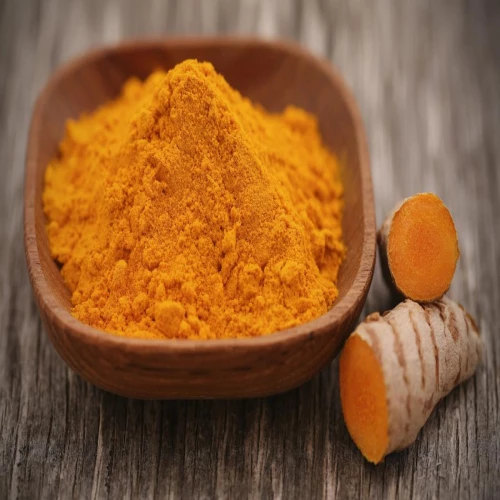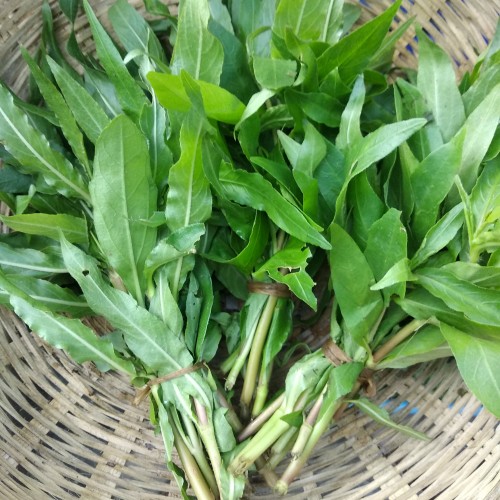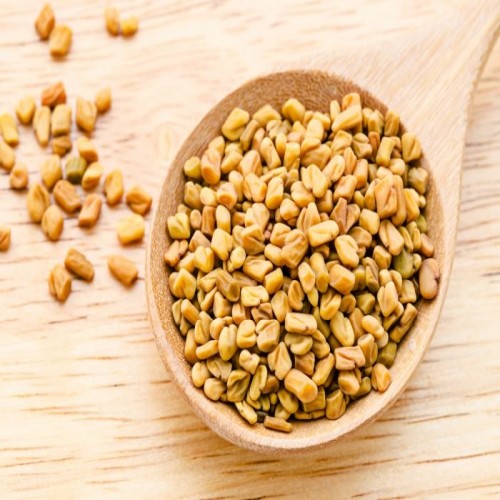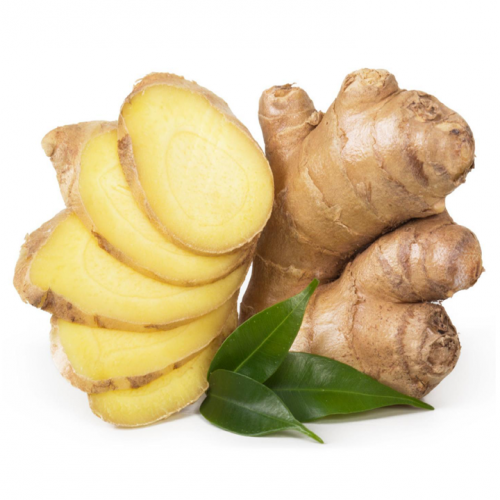Medicinal role of 8 important herbs in our daily life

Herbs are different types of plants whose leaves, stems, roots, barks are used in different ways in our society for adding flavor, or taste in food, for cosmetic use and also for the medicinal purpose, etc.
Herbs are the very common and most demanding thing in cuisine worldwide. Herbs are cultivated throughout the world mostly in tropical Asia, Africa, South America, and Some parts of Australia, etc. In most Asian countries, like India, China, Japan, and Thailand, they use different herbs for making different types of delicious traditional dishes.
Now a day, herbs play an important role in world health. Many researches have established that herbs play a role in the treatment of different types of health issues. In the medicinal industry, many herbs are used for making medicines for treatment and research on this topic is also going on worldwide. In Asia, some countries like India, China, and Japan people are treated by some traditional treatment which is completely based on organic plants and herbs, till from thousand years ago. In India, Ayurvedic, Unani treatments, in China, China Herbal medicines are based on plants and herbs.
The best part of this treatment is fewer side effects compared to synthetic treatment. Most of the herbs are very easily available in the market and economically sustainable. People can easily cure various health issues primarily like cold, cough, nausea, vomiting, itching, skin rashes, hair fall, etc. with the help of herbs.
Therefore, we need to know the medicinal values of herbs and their effectiveness. Here I mention some very popular herbs in our society and their medicinal values in our health.
1. Tulsi or Holy Basil:
Scientific Name: Ocimum tenuiflorum
Common Name: Tulsi (In Bengali & Hindi), Holy Basil (In English).
Holy Basil is one of the most popular herbs in India, China, Japan for its flavor, medicinal purpose and also for traditional rituals. In India, Tulsi is widely used in Ayurvedic treatment from thousand years ago. In Ayurveda treatment, Holy Basil is known as “Mother Medicine of Nature” or “The Queen of Herbs”.
Most of the researches established, that Holy Basil contains a good amount of iron, potassium, vitamin-k, vitamin-A, vitamin-C, magnesium, etc. Some modern studies also revealed that this herb also has anti-inflammatory, anti-microbial, anti-allergic, anti-diabetic, anti-fungal properties. Till now, researches are going on the effectivities of this herb on medicine. Apart from medicinal use, it is also used in cuisine and Indian traditional rituals.
 Medicinal roles:
Medicinal roles:
-
Fever
-
Asthma
-
Diabetes
-
Stress relief
-
Cold
-
Cough
-
Diarrhea
-
Fungal infections
How to consume naturally:
-
2-3 Leaves of Holy Basil can be consumed by chewing. Before chewing make sure leaves are washed properly.
-
Holy Basil can be consumed as a herbal tea form.
-
Holy basil can be used to make some curry.
2. Turmeric:
Scientific name: Curcuma longa
Common Name: Halud (In Bengali), Haldi (In Hindi), Manjal (In South India), Turmeric (In English).
Turmeric is an herb that belongs to ginger families. This herb is mainly cultivated in Southeast Asia, Indian subcontinents. In Asia, turmeric is widely used in cuisine as spices. This herb is mainly popular for its natural color and flavor.
In India, turmeric is also used in some traditional rituals and also used as a home remedy for its medicinal effects. Curcumin, a polyphenolic compound that is present in turmeric. It has anti-inflammatory and anti-oxidant properties, therefore it also used for medicinal purposes. In Ayurveda or Siddha, turmeric also widely used as a medicine.
Medicinal roles:
-

P.C.: Medical News today Joint pain
-
Arthritis
-
Gastro-Intestinal problems
-
Skin problems
-
Liver problems
-
High cholesterol levels.
How to consume naturally:
-
Turmeric can use as a spice in different curries.
-
Used in turmeric tea.
-
Turmeric can also be taken along with milk.
-
Turmeric paste can also be consumed with rice.
3. Kulekhara leaves or Swampweed:
Scientific name: Hygrophila spinose T.
Common name: Kulekhara (In Bengali), Talimakhana (In Hindi), Swampweeds (In English).
Swampweed is usually used for the traditional purpose as well as medicinal purpose also especially in India. These leaves are grown in the tropical and sub-tropical areas of India, some places of Nepal, Malaysia, Pakistan, Bangladesh, and Sri Lanka, etc. In India, kulekhara leaves are widely used in Ayurveda treatment. Researches have shown that these leaves are good sources of vitamin C, iron, calcium, flavonoids, alkaloids, and terpenoids, etc. These leaves also have anti-inflammatory, anti-bacterial, hematopoietic and anti-oxidant properties. The different parts of these leaves like roots, flowers, leaves, stem, and seeds, etc. are used for different health issues.
Medicinal roles:
-
 Diarrhea
Diarrhea -
Iron Deficiency Anemia
-
Liver disease
-
Treatment of diuretics
-
Jaundice
-
Kidney disorder
-
Arthritis
How to consume naturally:
-
Wash the leaves properly and boil it. Filter the water and keep it cold. After cooling the water, drink it. For Iron Deficiency Anemia, it really works effectively.
-
You can also take boiled leaves mixed with rice.
-
Traditionally, kulekhara leaves are also widely used in a curry form.
4. Neem:
Scientific name: Azadirachta indica
Common name: Neem (In Bengali & Hindi), Vembu (In Tamil), Margosa, Indian lilac (In English).
Neem is a magical medicinal herb used in Ayurveda, Unani and homeopathy treatment. Whole parts of these herbs like leaves, stem, seed, etc. are equally used for medicinal purposes. Neem trees are widely found in India, Bangladesh, Sri Lanka, Maldives, and Pakistan, etc. Neem is a combination of antiseptic, anti-viral, anti-fungal, anti-bacterial properties. Neem leaves also very popular for traditional cooking.
Medicinal Roles:
-
 Diabetes
Diabetes -
Acne
-
Pimples
-
Hair growth
-
Dental health,
-
Fevers especially malaria
-
Itching
-
Rashes
-
Blood purification
-
Skin treatment
-
Neem oil is also used for paste control.
Cautions: Excess intake of neem can also affect the liver and kidney. Neem oil taken by mouth may affect pregnancy, cause of infertility and harmful for small children.
How to consume naturally:
-
Neem leaves can be taken with rice in fried form.
-
It also used for traditional cooking forms.
-
Chewing neem stems also help dental health.
-
Neem can also be consumed as herbal tea.
5. Cinnamon:
Scientific name: Cinnamomum verum
Common Name: Dalchini (In Bengali & Hindi), Dasini chekka (In Telugu), Elavangam, Vayana (In Malayalam), Cinnamon (In English).
Cinnamon is the most popular herb around the world for its flavor and aroma. The oil and organic compound cinnamaldehyde are mostly responsible for the flavor of cinnamon. Cinnamon mostly comes from Sri Lanka, Indonesia, China, and Varma. Usually, cinnamons are available in two forms like Ceylon cinnamon or true cinnamon, and Cinnamomum cassia or Chinese cassia. Cinnamon is also a well-known spice for chefs around the world for its sweet flavor. Nutritionally, cinnamon is a good source of iron, calcium, Vitamin-K, potassium, dietary fiber, protein, etc. Researches have shown that cinnamon is also a good source of anti-oxidant and anti-inflammatory properties.
Medicinal Roles:

-
Reduce blood sugar level
-
Reduce the risk of heart diseases
-
Fight against fungal infections
-
Bacterial infections
-
It may also fight against the HIV virus
-
It may use for cancer treatment.
How to consume naturally:
-
Cinnamon is widely used as a spice for its flavor.
-
Cinnamon can also be consumed as herbal tea.
-
Cinnamon water (Mix ½ tsp of cinnamon with boiled water and keep it cool. After cooling, add 1 tsp of honey and drink).
6. Fenugreek:
Scientific name: Trigonella foenum-graecum.
Common name: Methi (In Bengali & Hindi), Vendayam or Venthiyam (In Tamil), Mentulu or Menthulu (In Telugu), Fenugreek (In English).
Fenugreek is a herb which is mainly cultivated in India, Middle-east, and Egypt, etc. Fenugreek is used as a spice in Indian cuisine and is also used for alternative medicine purposes. Nutritionally, fenugreek seeds contain a good amount of iron, B-vitamins, calcium, protein, and carbohydrate.
Medicinal Roles:
 Control blood sugar level
Control blood sugar level-
Control blood pressure level
-
Helps to increase the breast milk of a lactating mother
-
Boost up testosterone level of men
-
Improve the digestive system
-
Help to lose bodyweight.
How to consume naturally:
-
Fenugreek is used as a spice for traditional cooking.
-
Fenugreek water helps to control diabetes (Take ½ tsp of fenugreek powder and mix it with 1 glass of water. Soak overnight and drink the filtered water next day morning).
7. Ginger:
Scientific name: Zingiber officinale
Common name: Ada (In Bengali), Adrak (In Hindi), Inji (In Tamil), Allamu (In Telugu), Ginger (In English).
Ginger is one of the very popular herbs for its flavor and taste worldwide. It is also known for its medicinal role. Ginger is mainly cultivated in Asian countries. It is also available in Europe, Africa, and the Middle East. Ginger contains a good amount of Potassium, calcium, magnesium, zinc, B-vitamins, etc. Gingerol, one of the most powerful phenolic compound is present in ginger. It is used for medicinal purposes for its anti-inflammatory and anti-oxidant properties.
Medicinal roles:
-
 Reduce vomiting tendency
Reduce vomiting tendency -
Improve cholesterol level
-
Reduce muscle pain
-
Prevent nausea
-
Relief from cold & cough
-
Relief from arthritis pain due to the presence of anti-inflammatory properties.
How to consume naturally:
-
Ginger is used as a spice in cooking.
-
Ginger-lemon water is helpful to boost up energy, helps to lose weight.
-
During cold & cough, nausea, the tendency of vomiting, chewing a small number of ginger flakes provides relief.
-
Ginger can also be consumed as herbal tea.
8. Clove:
Scientific name: Syzygium aromaticum
Common name: Lawang (In Bengali), Laung (In Hindi), Kirambu, Lavangam (In Tamil), Lavangalu (In Telugu), Clove (In English).
Clove is another popular herb for its taste and aromatic flavor. It is also known for its medicinal properties. Clove is found mainly in Indonesia, Sri Lanka, Malaysia, and India. Clove is a good source of fibers, manganese, vitamin-C, and vitamin-K, etc. Clove oil contains eugenol, an aromatic liquid that has anesthetic and anti-inflammatory properties. Therefore, it also used as traditional medicine. The essential oil which is present in the clove is also used for aromatherapy.
Medicinal roles:
-
 Provides relief from tooth pain
Provides relief from tooth pain -
Clove has antioxidant properties which help to maintain good health due to the presence of vital vitamins and minerals
-
It helps to boost up the immune system
-
Helps to improve liver disease
-
Regulate the blood sugar levels
-
Used as a natural mouth freshener
-
It also helps to get relief from cough.
How to consume naturally:
-
Clove can be used as a spice in cooking.
-
Daily 1-2 pc clove can be consumed orally for overall good health.
-
Clove can also be consumed as herbal tea.
Here I have mentioned a few important herbs and their medicinal roles. There are also many other herbs present in nature which play an important role in our health. Herbs have helped to stay healthy naturally for a long time. Till now, researchers are trying to find new medicinal roles of different herbs for different treatments. We can get relief from various health issues like cold, cough, skin rashes, hair falls, acne, pimples, etc. by the use or consumption of herbs naturally.
References:
-
https://www.webmd.com/vitamins/ai/ingredientmono-662/turmeric
-
(PDF) Ethnobotanical Study of Kulekhara (Hygrophila auriculata) - A Review
-
http://www.branoliachemicals.com/kulekhara-a-medicinal-herb/
-
http://www.frienvis.nic.in/WriteReadData/UserFiles/file/pdfs/Neem.pdf
-
https://www.healthline.com/nutrition/fenugreek#other-benefits
-
https://www.healthline.com/nutrition/benefits-of-cloves#section7












0 Comments